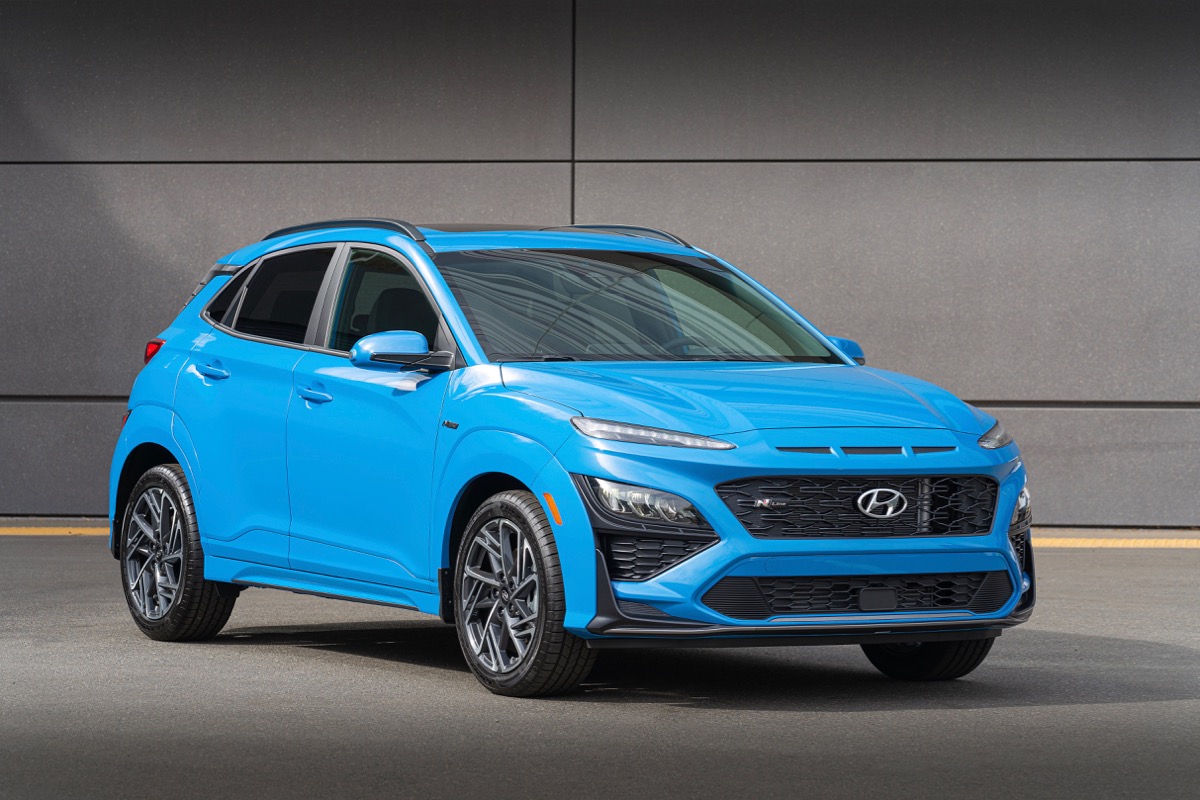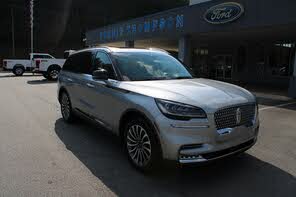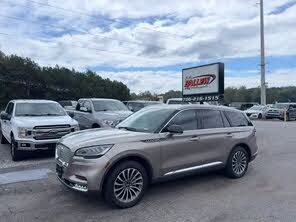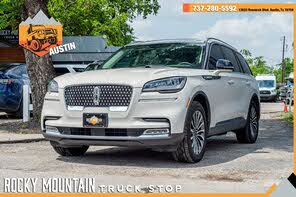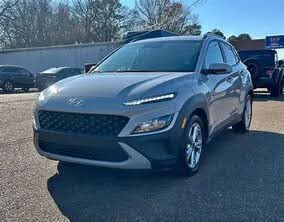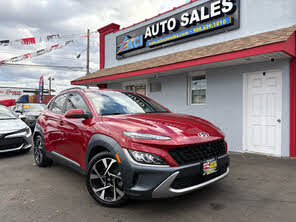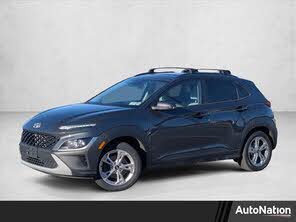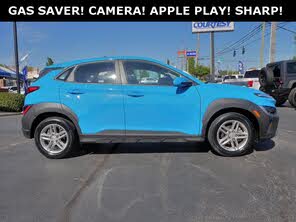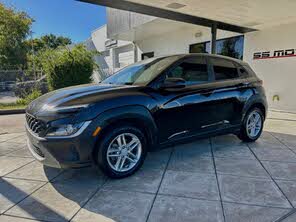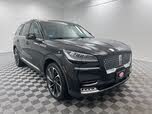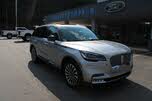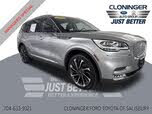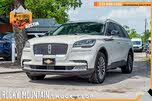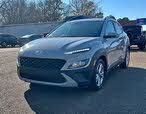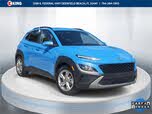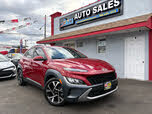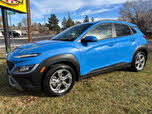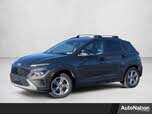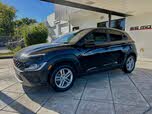2021 Lincoln Aviator vs 2022 Hyundai Kona
Overview | |
MSRP$50,660 | MSRP$21,300 |
Listings288 | Listings683 |
Ratings & Reviews | |
User Reviews | User Reviews |
Expert reviews7.8 out of 10 | Expert reviews7.7 out of 10 |
Pros
Cons
| Pros
Cons
|
2021 Lincoln Aviator Reviews SummaryOnly a few years ago, Lincoln was in a confusing space. Confusing because many of its cars overlapped with the nicest trims of vehicles from parent company Ford. It was also confusing because of the alphanumeric vehicle names. But Lincoln has ended both of those trends. First, Lincoln has returned to real names for its vehicles, such as the Corsair and Nautilus (Cadillac, are you listening?!). But what’s in a name? This rebranding would be moot without a compelling product. In this respect, the American luxury brand has delivered, highlighted by the 2021 Lincoln Aviator. This three-row midsize SUV boasts modern technology, potent drivetrain options, and creature comforts that you might sooner find in a high-end German luxury sedan. But this newfound quality comes with a steeper price tag. So is it worth consideration against the likes of the Audi Q7 and RX 350L? Read on to find out. | |
2022 Hyundai Kona Reviews SummaryIn its fifth year on the market, the Hyundai Kona gets its first significant refresh, complete with updated exterior styling, enhanced powertrains, and upgraded convenience, connectivity, and safety features. There are also two new sporty variants—the N Line and the Kona N—giving this subcompact SUV shoppers a legitimate performance option at a budget price. | |
No video found | No video found |
Popular Features & Specs | |
Engine3.0L 400 hp V6 | Engine2.0L 147 hp I4 |
Drive TrainRWD | Drive TrainFWD |
Seating Capacity7 | Seating Capacity5 |
Horsepower | Horsepower147 hp @ 6200 rpm |
MPG City18 | MPG City30 |
MPG Highway26 | MPG Highway35 |
Engine | |
Engine Name3.0L 400 hp V6 | Engine Name2.0L 147 hp I4 |
Torque | Torque132 lb-ft @ 4500 rpm |
Horsepower | Horsepower147 hp @ 6200 rpm |
DrivetrainRWD | DrivetrainFWD |
Fuel Economy | |
MPG City18 | MPG City30 |
MPG Highway26 | MPG Highway35 |
Interior | |
Seating Capacity7 | Seating Capacity5 |
Safety | |
Front Crash Overall5 | Front Crash Overall5 |
Side Crash Overall5 | Side Crash Overall5 |
Dimensions & Capacity | |
Cargo Space18.3 cu ft | Cargo Space19.2 cu ft |
Curb Weight4745 lbs | Curb Weight2899 lbs |
Height69.6 in | Height61.0 in |
Length199.3 in | Length165.6 in |
Width89.9 in | Width70.9 in |
Wheelbase119.1 in | Wheelbase102.4 in |
Maximum Payload1615 lbs | Maximum Payload1069 lbs |
Number of doors4 | Number of doors4 |
Overview | ||
MSRP | $50,660 | $21,300 |
Listings | ||
Ratings & Reviews | ||
User reviews | ||
Expert reviews | 7.8 out of 10Read full review | 7.7 out of 10Read full review |
Pros & cons | Pros
Cons
| Pros
Cons
|
Summary | Only a few years ago, Lincoln was in a confusing space. Confusing because many of its cars overlapped with the nicest trims of vehicles from parent company Ford. It was also confusing because of the alphanumeric vehicle names. But Lincoln has ended both of those trends. First, Lincoln has returned to real names for its vehicles, such as the Corsair and Nautilus (Cadillac, are you listening?!). But what’s in a name? This rebranding would be moot without a compelling product. In this respect, the American luxury brand has delivered, highlighted by the 2021 Lincoln Aviator. This three-row midsize SUV boasts modern technology, potent drivetrain options, and creature comforts that you might sooner find in a high-end German luxury sedan. But this newfound quality comes with a steeper price tag. So is it worth consideration against the likes of the Audi Q7 and RX 350L? Read on to find out. | In its fifth year on the market, the Hyundai Kona gets its first significant refresh, complete with updated exterior styling, enhanced powertrains, and upgraded convenience, connectivity, and safety features. There are also two new sporty variants—the N Line and the Kona N—giving this subcompact SUV shoppers a legitimate performance option at a budget price. |
Video | No video found | No video found |
Popular Features & Specs | ||
Engine | 3.0L 400 hp V6 | 2.0L 147 hp I4 |
Drive Train | RWD | FWD |
Seating Capacity | 7 | 5 |
Horsepower | 147 hp @ 6200 rpm | |
MPG City | 18 | 30 |
MPG Highway | 26 | 35 |
Engine | ||
Engine Name | 3.0L 400 hp V6 | 2.0L 147 hp I4 |
Torque | 132 lb-ft @ 4500 rpm | |
Horsepower | 147 hp @ 6200 rpm | |
Drivetrain | RWD | FWD |
Fuel Economy | ||
MPG City | 18 | 30 |
MPG Highway | 26 | 35 |
Interior | ||
Seating Capacity | 7 | 5 |
Safety | ||
Front Crash Overall | 5 | 5 |
Side Crash Overall | 5 | 5 |
Dimensions & Capacity | ||
Cargo Space | 18.3 cu ft | 19.2 cu ft |
Curb Weight | 4745 lbs | 2899 lbs |
Height | 69.6 in | 61.0 in |
Length | 199.3 in | 165.6 in |
Width | 89.9 in | 70.9 in |
Wheelbase | 119.1 in | 102.4 in |
Maximum Payload | 1615 lbs | 1069 lbs |
Number of doors | 4 | 4 |
The 2021 Lincoln Aviator stood out by not mimicking its competitors' styles. Instead, it adopted the successful design language of the larger Navigator, resulting in a sharp-looking vehicle with crisp lines and chrome accents. Inside, the Aviator differentiated itself from its Ford counterpart with a luxurious cabin featuring soft-touch materials, a 10.1-inch touchscreen, and a piano button shifter. The soothing chimes and massaging front seats added to the air of class and comfort.
The 2022 Hyundai Kona received a significant makeover, including a 1.6-inch increase in length, revised front and rear fascias, and new alloy wheel designs. The interior featured a more horizontal layout, ambient lighting, and a rear USB port. The addition of the sporty N Line and Kona N trims brought unique styling elements and performance upgrades, making the Kona look more athletic and racy. The N Line's exclusive black seats with red stitching and alloy sport pedals added to the sporty feel.
















The 2021 Lincoln Aviator offered a 3.0-liter twin-turbocharged V6 engine with 400 horsepower and 415 pound-feet of torque, paired with a 10-speed automatic transmission. The Grand Touring and Grand Touring Black Label trims featured a plug-in hybrid configuration, increasing output to 494 hp and 630 lb-ft of torque. The hybrid powertrain provided brisk acceleration and a smooth swell of power, although the Aviator's heft resulted in noticeable body roll in corners. The drive mode selector included "Excite" and "Conserve" modes, making the Aviator well-suited for highways and cul-de-sacs but less composed in city driving.
The 2022 Hyundai Kona offered a variety of engines and transmissions. The SE and SEL trims featured a 2.0-liter four-cylinder engine with 147 horsepower and 132 pound-feet of torque, paired with a CVT. The N Line and Limited trims had a turbocharged 1.6-liter four-cylinder engine with 195 hp and 195 lb-ft of torque, paired with a seven-speed DCT. The Kona N featured a turbocharged 2.0-liter four-cylinder engine with 276 hp and 289 lb-ft of torque, paired with an N eight-speed wet DCT. The Kona N also included performance features like launch control and an electronic limited-slip differential. Our test vehicle, a Kona N Line, provided adequate power and was easy to maneuver in city settings, with composed handling and a quiet cabin.
The 2021 Lincoln Aviator provided 18.3 cubic feet of cargo space behind the third-row seats, expandable to 41.8 cubic feet with the third row folded, and 77.7 cubic feet with all rear seats folded. The second row, especially in the Grand Touring trim, offered ample space and comfort with captain's chairs and a digital control panel. However, the power-button door releases raised concerns about functionality if the battery died.
The 2022 Hyundai Kona, while small, offered ample headroom and legroom for front-seat occupants. Rear-seat space was more limited, with small door openings and compromised head- and legroom. Cargo space was 19.2 cubic feet with all seats up, expandable to 45.8 cubic feet with the rear seats folded. However, the Kona's compact dimensions made it less suitable for carrying larger loads or accommodating three adults in the back seat.
The 2021 Lincoln Aviator featured a 10.1-inch touchscreen with the intuitive Sync 3 infotainment system, Apple CarPlay, and Android Auto. The fully digital instrument panel and optional head-up display provided clear and easy-to-read information. The Aviator's infotainment system was user-friendly, with a sensible menu layout and redundant controls in the center stack.
The 2022 Hyundai Kona added more tech for 2022, including an 8-inch display on the base SE trim and a 10.25-inch touchscreen on higher trims. The Kona also offered wireless Android Auto and Apple CarPlay, a Harman Kardon premium audio system, and Hyundai Blue Link. The infotainment system was easy to use, with intuitive controls and seamless smartphone connectivity. The Kona's tech features brought a level of accessibility to an entry-level model that was impressive for its price point.
The 2021 Lincoln Aviator came well-equipped with standard driver assistance features, including automatic emergency braking, lane departure warning, automatic high beams, blind-spot monitoring, and front-and-rear parking sensors. The Co-Pilot 360 Plus package added reverse automatic braking, self-parking functionality, and adaptive cruise control. The Aviator earned top marks from the NHTSA and IIHS, including a Top Safety Pick accolade.
The 2022 Hyundai Kona's standard safety features included automatic emergency braking with pedestrian detection, lane-keeping assistance, lane-following assistance, driver attention warning, and rear occupant alert. Available technologies included adaptive cruise control, blind-spot warning, and rear cross-traffic alert. The Kona received five stars from the NHTSA for overall crash protection and high ratings from the IIHS, although it did not achieve Top Safety Pick status due to the child-seat anchors' "Marginal" rating.
CarGurus highlights

According to CarGurus experts, the overall rating for the 2021 Lincoln Aviator is 7.8 out of 10, while the 2022 Hyundai Kona scores 7.7 out of 10. Based on these ratings, the 2021 Lincoln Aviator is the recommended choice for its superior luxury, comfort, and safety features.
Choose the 2021 Lincoln Aviator if:
- You prioritize luxury and comfort with features like massaging front seats and soothing chimes.
- You need ample cargo space and a spacious second row with captain's chairs.
- You value top safety ratings and a comprehensive suite of driver assistance features.
Choose the 2022 Hyundai Kona if:
- You want a sporty and athletic subcompact SUV with performance-oriented trims like the N Line and Kona N.
- You appreciate advanced tech features like a 10.25-inch touchscreen, wireless device charging, and Hyundai Blue Link.
- You need a maneuverable and easy-to-drive vehicle for city settings with a quiet cabin.
CarGurus highlights

According to CarGurus experts, the overall rating for the 2021 Lincoln Aviator is 7.8 out of 10, while the 2022 Hyundai Kona scores 7.7 out of 10. Based on these ratings, the 2021 Lincoln Aviator is the recommended choice for its superior luxury, comfort, and safety features.
Choose the 2021 Lincoln Aviator if:
Shop Now- You prioritize luxury and comfort with features like massaging front seats and soothing chimes.
- You need ample cargo space and a spacious second row with captain's chairs.
- You value top safety ratings and a comprehensive suite of driver assistance features.
Choose the 2022 Hyundai Kona if:
Shop Now- You want a sporty and athletic subcompact SUV with performance-oriented trims like the N Line and Kona N.
- You appreciate advanced tech features like a 10.25-inch touchscreen, wireless device charging, and Hyundai Blue Link.
- You need a maneuverable and easy-to-drive vehicle for city settings with a quiet cabin.

By: CarGurus + AI
At CarGurus, our team of experienced automotive writers remain at the heart of our content operation, conducting hands-on car tests and writing insightful guides that are backed by years of industry experience. To complement this, we are harnessing AI to make our content offering more diverse and more helpful to shoppers than ever. To achieve this, our AI systems are based exclusively on CarGurus content, ratings and data, so that what we produce is both unique to CarGurus, and uniquely helpful to car shoppers.
